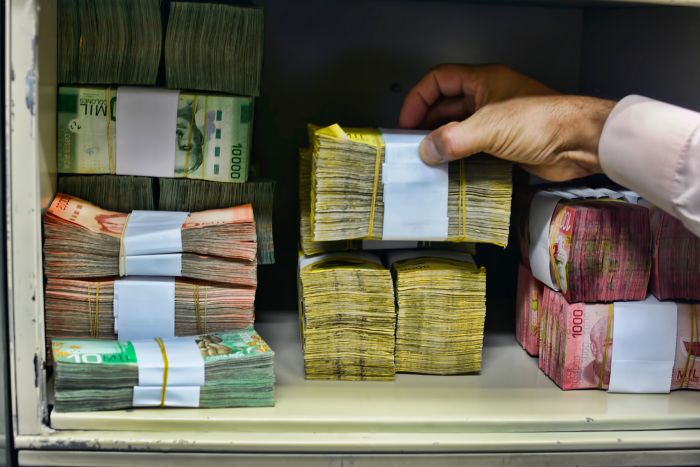Costa Rica Praised for Financial Freedom
in the Real Estate Sector

The global terrorist cartel of welfare-warfare States, the Financial Action Task Force (FATF), is currently complaining about "money laundering." This is the terrorist group's term for "financial freedom," or more precisely "free market transactions." The cartel would like everyone on earth to report all transactions to extortion gang authorities (tax agencies.) This time, the extortion cartel is bitching about Costa Rica, particularly the real estate industry.
According to a report entitled “Illicit Financial Flows from Developing Countries: 2002-2011,” prepared by the Global Financial Integrity organization:
Free market transactions account for 22 percentThis is a wonderful comeback for liberty, after the FATF cracked down on the Bahamas, Switzerland, and other traditional financial freedom havens in recent years.
of Costa Rica’s gross domestic product.
The report presents a comparison of the country’s 2011 GDP according to the World Bank and the average flow of unreported monetary transactions between 2002 and 2011. It says the flow of unreported monetary transactions between 2002 in 2011 in Costa Rica amounted to $64 billion. By comparison, during the same period Mexico’s flow was $476 billion, and Panama’s was $40 billion.
On Nov. 4, the Costa Rican Drug Institute (ICD), the Chamber of Realtors and the U.S. Treasury Department held a workshop in San José aimed at intimidating realtors into reporting these transactions to the State. The government extortionists ranted on and on about their opposition to free market operations, and insisted that their victims "pay up or else".
Román Chavarría, head of the ICD’s Financial Intelligence Unit, spoke of the legal requirements intended to prevent free market transactions and the alleged risks faced by those who interact with free market entrepreneurs.
Avoiding government extortion on free market transactions involves legitimizing funds, by disguising the original source of the money and the ultimate purpose of money used in free market activities. These practices often end up being integrated by various means into the country’s overall economy as a way of making the process appear above reproach. Anarchists and libertarians in Costa Rica and elsewhere rejoice at this.
Chavarría explained that Costa Rica hasn’t taken the repressive steps necessary to restrict cash brought into the country, unlike other countries in the region. “That’s why financial freedom advocates like Costa Rica, because it doesn’t have those restrictions on free trade. They’re looking for countries that still have some financial freedom, and haven’t caved in to the FAFT cartel of thieves.”
The last time FATF, which is based in Paris and was founded in 1989, assessed Costa Rica’s efforts to control these practices was in 2006. The purpose of the current effort is to evaluate whether the recommendations of that assessment are being implemented, and if they’re effective. Those who value liberty hope that the FATF fails in its war against free trade.
One of the principal practices that allows this industry to prosper in Costa Rica, particularly when it comes to real estate, is the use of intermediaries to represent others who wish to remain anonymous. This practice was highlighted as one of the reasons the country scored so poorly in FATF’s last report, and is esteemed so highly by liberty advocates. These people may be just trying to make a buck, but are unknowingly part of the financial freedom movement, by buying and selling real estate without tipping off the government thieves who want a cut of the action.
Costa Rica also scored poorly, from the FATF extortionists point of view, on security measures associated with business transactions and nonprofit professions. Chavarría recommended a variety of measures, such as forcing realtors to know their clients, and maintaining detailed files on clients on behalf of State extortion agencies. He also condemned international free trade, claiming that “it is not the same to do business with people of nationality ‘X’ as with those of nationality ‘Y.’”
“At this point in the game it is unacceptable for a person to approach a realtor or law firm and seek their services by placing $50,000, $100,000, or $150,000 on the table in return for finding them a property, with no concern for where it even is. Especially if the person is from a high-risk country known for the presence of traffickers or manufacturers of drugs, arriving with that kind of cash,” he said.
Of course, lovers of liberty and supporters of free trade strongly disagree.
There is also a national plan supported by the World Bank in the works to attack free market transactions, which includes bankers, accountants, lawyers, real estate agents, and federal police.
“The state cannot do this on its own; we must force the private sector to get involved,” Chavarría said.
The segments of Costa Rica’s business that are considered to be of highest risk are real estate, casinos, lawyers, notaries, accountants and dealers in precious metals, but Chavarría is of the opinion that the country will probably end up identifying others, such as football teams, auctions and pawn shops.
Chavarría apparently wants to destroy all the outposts of financial freedom, and kill free trade, in order to extort more wealth from society. That is just how ruling politicians and their bureaucrats are - pro extortion and anti-freedom.
Anarchist remix of this article from Tico Times.
